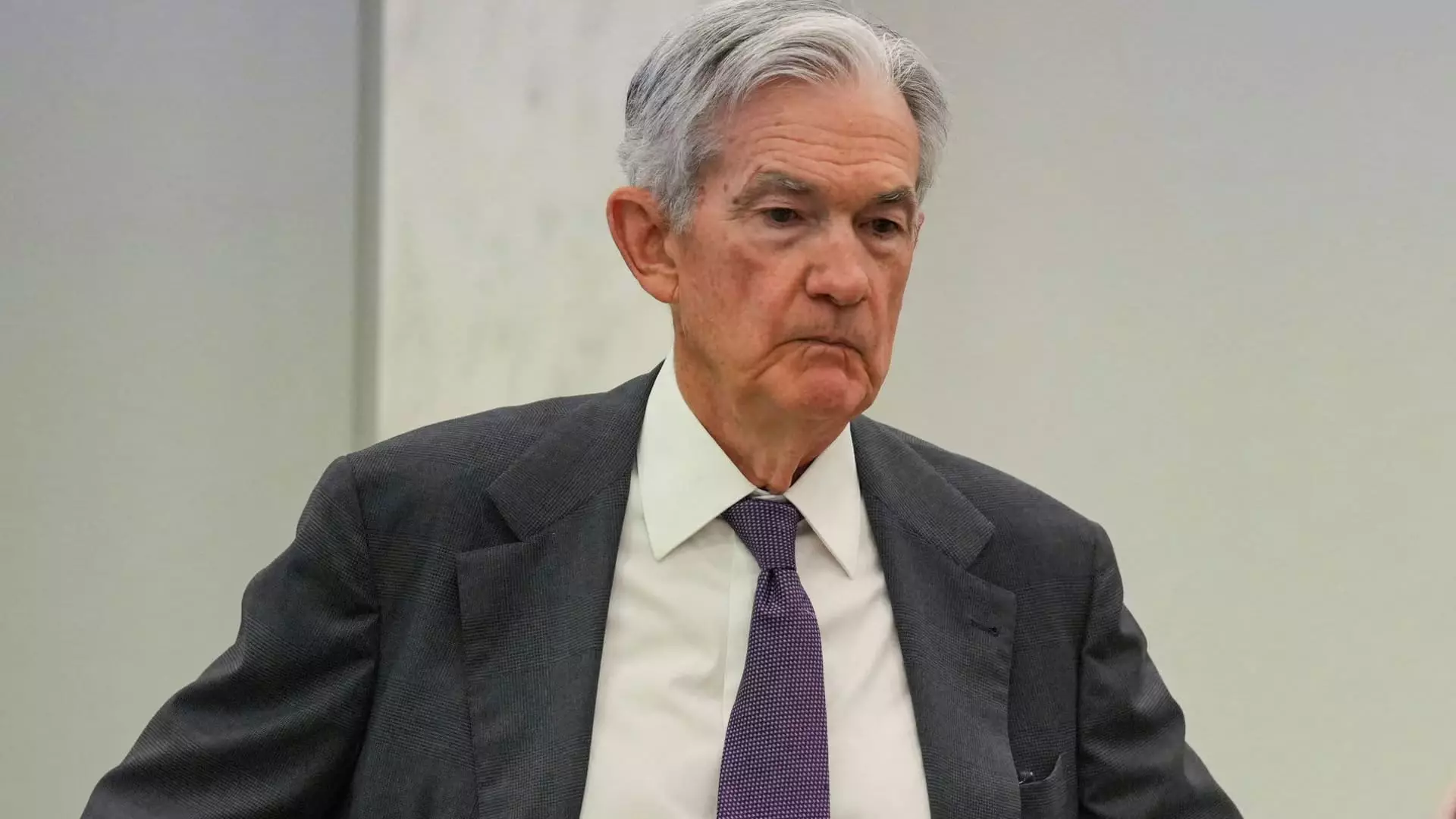The narrative surrounding the Federal Reserve’s independence has long been regarded as a cornerstone of economic stability, yet it warrants a skeptical lens. The recent discourse highlights how political pressures relentlessly encroach upon the sanctity of central banking, revealing a superficial veneer of autonomy. While officials like Treasury Secretary Scott Bessent reiterate the Fed’s supposed independence, their nuanced comments suggest an underlying acknowledgment that this independence is more fragile than it appears. The fact that political figures, including President Donald Trump, openly express desires for interest rate adjustments and even the resignation of Chair Jerome Powell, exposes a troubling reality: the Federal Reserve operates under significant political scrutiny, which inherently compromises its objectivity.
The spectacle of commanding political figures influencing monetary policy decisions defies the very premise of an insulated institution. When a president openly contemplates removing a Fed chair or demanding lower interest rates, it signifies that the central bank’s decision-making power is susceptible to partisan whims. The true challenge resides in whether the Fed can resist these pressures or if it becomes an instrument of political expediency. The assumption that monetary policy adjustments are purely technical decisions is simplistic; in practice, they are deeply intertwined with political narratives about economic performance, which makes the claim of independence bordering on myth.
Overreach and Oversight: Unveiling the Hidden Flaws
One of the most revealing aspects of recent commentary is the call for an internal review of the Fed’s operations—a move that suggests dissatisfaction with current oversight mechanisms. Treasury Secretary Bessent’s emphasis on scrutinizing the Fed’s “growth” and “lack of oversight” underscores systemic vulnerabilities. While the Fed claims to be guided by economic data and technical analysis, this insistence on internal scrutiny indicates that the institution has been influenced and perhaps even compromised by unchecked expansion and opaque spending.
The controversial $2.5 billion building renovation project, marred by cost overruns, exemplifies how financial mismanagement often goes under the radar within large bureaucratic institutions. The real concern here is whether such projects reflect mere inefficiency or signal deeper issues of accountability. To that end, external political interference—regardless of its intent—further erodes the legitimacy of the Fed’s governance. An institution entrusted with safeguarding monetary stability should be transparent and subject to oversight that guards against the drift toward bureaucratic complacency and financial misappropriation.
The Political Pendulum: Manipulation versus Responsible Governance
The current tug-of-war between the White House and the Fed exemplifies a broader tension—one that pits political expediency against responsible central banking. President Trump’s repeated calls for rate cuts exemplify a desire for short-term economic gains, possibly at the expense of long-term stability. Meanwhile, officials like Michelle Bowman call for balancing independence with accountability, recognizing that transparency is essential even within an autonomous system.
This dynamic underscores a fundamental problem: the risk that central banking becomes a pawn in political battles. When interest rate policies are driven by electoral calculations or the desire to appease constituent expectations, economic stability becomes compromised. A resilient central bank would resist such pressures and adhere steadfastly to its mandates. However, the reality remains that political influence is an ever-present threat, especially when public officials leverage their platforms to shape monetary policy in their favor.
It becomes imperative that the Fed refocus on its core mandate—fostering economic stability through prudent, data-driven decisions—rather than succumbing to the shortsighted desires of political figures. The delicate dance of balancing independence with accountability must reflect a commitment to overarching economic health, not transient political victories.
The Future of Central Banking: Toward True Accountability
As markets anticipate rate decisions and financial markets are sensitive to potential policy shifts, the question remains: can the Fed sustain its independence in a politically charged environment? The answer depends on whether it undergoes meaningful reforms that reinforce its autonomy and transparency. Internal reviews, public accountability measures, and clearer boundaries regarding political influence are non-negotiable if trust in the institution is to be preserved.
In a broader sense, the current narrative exposes the contradictions inherent in a system that claims independence while simultaneously subjecting itself to political pressure. Recognizing this dissonance is the first step toward meaningful reform. Ensuring that the Fed is truly insulated from partisan meddling requires deliberate institutional safeguards—independent oversight boards, transparent decision-making processes, and strict rules barring political commentary from influencing monetary policy. Only then can we hope for a central bank that genuinely serves the public interest, free from the capricious whims of political actors who see monetary policy merely as a tool for short-term political gains.
The current debates serve as a stark reminder that the emperor has no clothes—central banking’s independence is often a facade, masking underlying vulnerabilities that pose risks to economic stability. If we are to preserve the integrity of our financial systems, the time for complacency must end. Transparency and accountability are not just ideals; they are necessary to restrain unchecked power and build a resilient, trustworthy institution that withstands the pressures of political tides.

